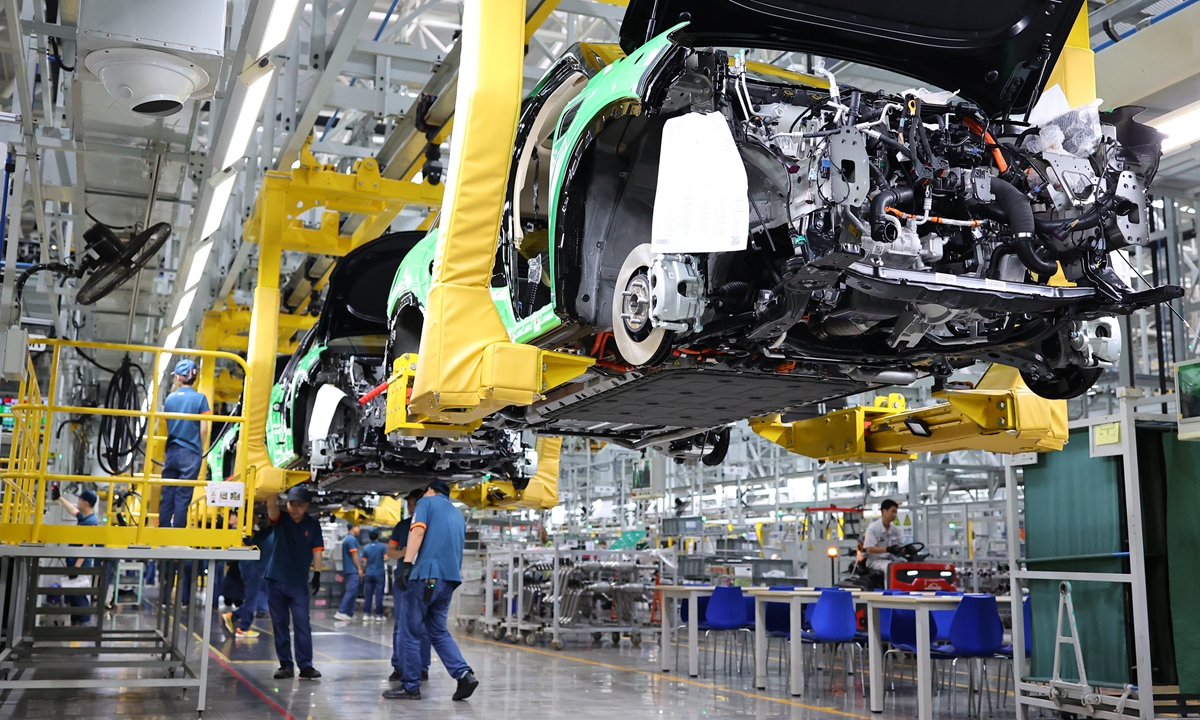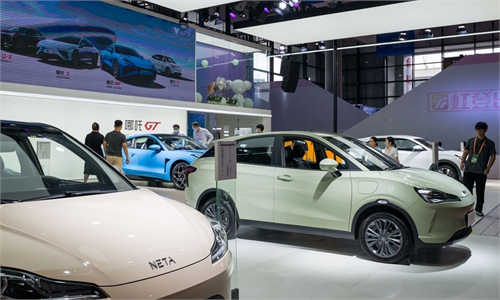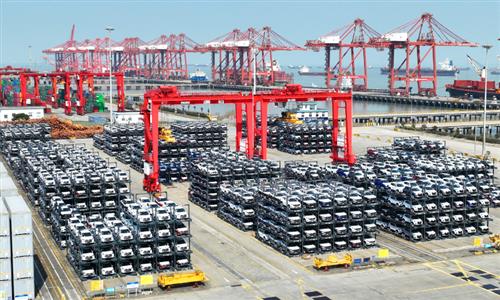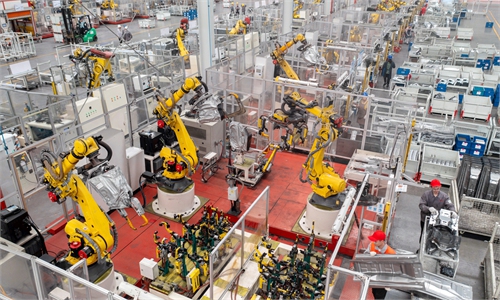
Workers assemble new-energy vehicles (NEVs) at a plant in Southwest China's Chongqing Municipality to fill overseas orders on September 21, 2023. NEV exports totaled 727,000 units in the first eight months of 2023, up 110 percent year-on-year, data from the China Association of Automobile Manufacturers showed. Photo: VCG
New-energy vehicle (NEV) penetration rate in Chinese market is expected to reach 50 percent by 2025, or 10 years earlier than originally forecasted as NEV sales boom in China, Miao Wei, former Minister of Industry and Information Technology said at China Auto Forum in Shanghai.
Miao said that NEV sales in China stayed at only 777,000 units in 2017, but jumped to 6.89 million units in 2022. The penetration rate of NEV reached 28.2 percent in 2022, surpassing the 20 percent target set for 2025, and it is predicted that the penetration rate would reach more than 33 percent this year.
"The trend of new energy vehicles replacing traditional gasoline-fired vehicles has taken shape," Miao said.
In terms of the penetration rate, the original target of more than 50 percent of NEVs in 2035 is likely to be achieved in advance during 2025 or 2026, Miao added.
With the rapid growth of NEV sector, the sales of domestic brand EVs in the first half of this year reached 5.986 million units, an increase of 22.4 percent year-on-year.
"This is the first time that China's domestic vehicle brands have surpassed the sales volume of foreign brands in the domestic passenger car market," Miao said.
In breakdown, the top 10 rankings in the January-August period were filled by domestic automakers, according to the China Passenger Car Association (CPCA).
In August, China's electric vehicle giant BYD produced a total of 5 million electric vehicles, a landmark that comes almost three decades after the company was launched in 1995, and it is also the first company in the world reaching such a target.
China's NEV industry is also attracting the world's leading car companies to increase investments in this huge market.
Reuters reported in November that Volkswagen has begun operating its first wholly-owned battery pack production plant in Hefei, East China's Anhui Province.
And, Volkswagen Anhui will also begin mass production of pure electric models based on the MEB platform at the end of 2023, local government officials said.
In July, Volkswagen announced that it signed a deal to jointly develop two NEV models together with Chinese EV maker Xpeng. As part of the deal, Volkswagen will invest about $700 million in Xpeng, taking a 4.99 percent stake.
Meanwhile, Chinese NEV companies are now expanding in many overseas markets, including efforts to shore up a complete industrial supply chain.
In November, Chinese lithium-ion battery giant Contemporary Amperex Technology (CATL), and Stellantis NV, a carmaker based in the Netherlands, announced the signing of a non-binding Memorandum of Understanding. The deal mirrors the need for stronger cooperation between European carmakers and Chinese companies, despite the growing protectionism in some EU countries.
A report recently released by LinkedIn China, together with MIT Technology Review China and DeepTech, said that Chinese international enterprises are moving from exporting labor- and capital-intensive products toward a path of technology-driven upgrading.
The firms recognized on the GlocalIN Top 50 list released by LinkedIn said they have been successful in expanding into overseas markets, injecting vitality into global smart technology through continuous innovation, market expansion and strategic cooperation, building on China's strong manufacturing base and its well-established network of supply chains.
Global Times



